00:20 PDT Chủ nhật, 28/04/2024
•Menu
•Tin đọc nhiều
-
 Nghệ sĩ Phương Cẩm Ngọc, Nguyễn Văn Khởi đoạt giải nhất cuộc thi “Tài năng diễn viên Cải lương toàn quốc 2023”
Nghệ sĩ Phương Cẩm Ngọc, Nguyễn Văn Khởi đoạt giải nhất cuộc thi “Tài năng diễn viên Cải lương toàn quốc 2023”
-
 Nghệ sĩ Minh Cảnh tuổi U90, xúc động nói trước mộ vợ: "Anh giờ đây không hề tiếc nuối, ham muốn điều gì nữa"
Nghệ sĩ Minh Cảnh tuổi U90, xúc động nói trước mộ vợ: "Anh giờ đây không hề tiếc nuối, ham muốn điều gì nữa"
-
 Cặp Đôi Đào Kép Chánh của Kim Chung 2 Minh Cảnh & Diệu Hiền Tái Ngộ Sau Gần 60 Năm
Cặp Đôi Đào Kép Chánh của Kim Chung 2 Minh Cảnh & Diệu Hiền Tái Ngộ Sau Gần 60 Năm
-
 Nghệ sĩ Thanh Hằng, Trọng Phúc, Phượng Loan tham gia Ban huấn luyện "Chuông vàng vọng cổ" lần thứ 18 - năm 2023
Nghệ sĩ Thanh Hằng, Trọng Phúc, Phượng Loan tham gia Ban huấn luyện "Chuông vàng vọng cổ" lần thứ 18 - năm 2023
-
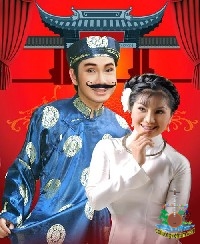 Vũ Luân: 'Tôi và Hồng Loan không biết gì về hợp đồng Hồng Phượng ký'
Vũ Luân: 'Tôi và Hồng Loan không biết gì về hợp đồng Hồng Phượng ký'
-
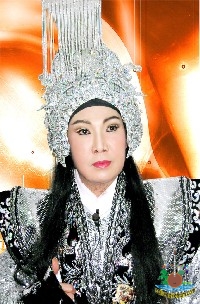 Tòa án thụ lý vụ kiện tranh chấp tài sản của nghệ sĩ Vũ Linh
Tòa án thụ lý vụ kiện tranh chấp tài sản của nghệ sĩ Vũ Linh
-
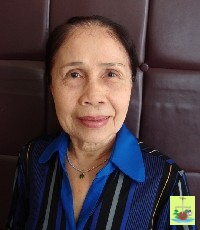 XÉT TẶNG DANH HIỆU NGHỆ SĨ NHÂN DÂN, NGHỆ SĨ ƯU TÚ: Đừng sót lọt tài năng, người có nhiều cống hiến
XÉT TẶNG DANH HIỆU NGHỆ SĨ NHÂN DÂN, NGHỆ SĨ ƯU TÚ: Đừng sót lọt tài năng, người có nhiều cống hiến
-
 Hành trình 20 năm - Một trang web để đời
Hành trình 20 năm - Một trang web để đời
-
 Nam nghệ sĩ Thanh Điền đã trở thành youtuber chuyên nghiệp?
Nam nghệ sĩ Thanh Điền đã trở thành youtuber chuyên nghiệp?
-
 Hoài Minh - Từ “trang giấy trắng” đến Chung kết “Chuông vàng vọng cổ” 2023
Hoài Minh - Từ “trang giấy trắng” đến Chung kết “Chuông vàng vọng cổ” 2023
•Tin ngẫu nhiên
-
 Bé Trần Thị Mỹ Dung đoạt giải quán quân cuộc thi “Hò, xự, xang, xê, cống” 2015
Bé Trần Thị Mỹ Dung đoạt giải quán quân cuộc thi “Hò, xự, xang, xê, cống” 2015
-
 Nhắn ERICA va BUU HIEN
Nhắn ERICA va BUU HIEN
-
 Những Tuồng Cải Lương Xưa trước 1975 hay nhất
Những Tuồng Cải Lương Xưa trước 1975 hay nhất
- Cải lương trẻ: Mới mẻ mà sâu sắc
-
 Sao Nối Ngôi mùa 2 - Bôi bác cũng làm
Sao Nối Ngôi mùa 2 - Bôi bác cũng làm
- Thế hệ vàng trên sàn tập Nửa đời hương phấn
-
 Chuyện tình đệ nhất mĩ nhân Sài Thành: Thanh Nga
Chuyện tình đệ nhất mĩ nhân Sài Thành: Thanh Nga
-
 Bolero- từ bình dân hóa đến “tầm thường hóa”
Bolero- từ bình dân hóa đến “tầm thường hóa”
-
 Festival Đờn ca tài tử quốc gia lần thứ II – Bình Dương năm 2017 chính thức khai mạc
Festival Đờn ca tài tử quốc gia lần thứ II – Bình Dương năm 2017 chính thức khai mạc
-
 KIỀU NỮ BÍCH SƠN
KIỀU NỮ BÍCH SƠN
•Thống kê truy cập
![]() Đang truy cập :
107
Đang truy cập :
107
•Máy chủ tìm kiếm : 2
•Khách viếng thăm : 105
![]() Hôm nay :
553
Hôm nay :
553
![]() Tháng hiện tại
: 1108837
Tháng hiện tại
: 1108837
![]() Tổng lượt truy cập : 76924215
Tổng lượt truy cập : 76924215
 »
Tin Tức
»
English
»
Tin Tức
»
English

Lan tỏa nét độc đáo của đờn ca tài tử
Sách "Tìm hiểu âm nhạc tài tử và cải lương vọng cổ - Ghita phím lõm" vừa ra mắt công chúng của nhạc sĩ Kiều Tấn là một tư liệu quý về tân nhạc, cổ nhạc và đờn ca tài tử (ĐCTT).
Three Beautiful Roses – Three Talented Singers/Actresses, each in her own way…
Đăng lúc: Thứ tư - 12/09/2012 15:47 - Đã xem: 6995
Three Beautiful Roses – Three Talented Singers/Actresses, each in her own way…
Up until now none of them have been awarded any titles in singing Vong Co (the singing component of Cai Luong), but no one can deny that their voices helped make Vong Co more popular than ever
MY CHAU
“My unique ability is to sing really low, with a deep tone,” My Chau said. She has had singing talent even at a young age, but it was in modern ballads instead of traditional music, which is what Vong Co is all about. Even to this day, she still prefers pop music. My Chau recalls when she was a young girl in the countryside, every time she turned on the radio she always heard Thanh Huong, a well-known singer at the time, sing. The first two songs that My Chau learned at the beginning of her career were Cô Bán Đèn Hoa Giấy (The Girl Who Sells the Paper Lanterns) and Tâm Sự Cô Gái Mù (The Innermost Feeling of a Blind Girl), which, coincidentally, were the same songs that Thanh Huong sang on the radio long ago. But when My Chau became a singer herself, she most admired actress Ut Bach Lan, who was also a famous singer.
As a young girl, My Chau would listen and obey her mom’s orders without having the faintest idea of what Cai Luong was all about or the difficult road ahead. “I was fortunate enough to be born with traits from which I can distinguish right from wrong. At the beginning of my career, I was able to figure out the right path. I remember the very first time I went to a recording studio to have my voice tested, they told me to go home and imitate the voice of a famous actress at the time. I just smiled with disgust and promptly left the studio. Luckily, when I joined the Asia recording company, no one had asked me to do the same thing; otherwise, there would not have been a My Chau as you know today.” She smiled happily when recalling the incident and one could sense the pride in her voice. How could she not be so proud when she was considered one of the finest actresses of all times? And apparently, keeping her own unique style many years ago at the recording studio, and not imitating someone else’s voice, turned out to be her greatest asset later on.
My Chau’s voice was so unusual for a female singer in such a way that she could sing low and deep tunes with ease, which is very rare among female singers, usually only male singers have this capability. She also enhanced her voice through creativity and proper techniques to make it even more mellow and soothing to the audiences. She said, “I realize my voice is very low and deep, which is quite unusual, so I use it to my great advantage. I have discovered some wonderful sounds and range of emotions at these really low, low notes. Since then, whenever I sing the first verse of a Vong Co song (a complete song contains six verses), I use two “huyen” (falling tone), or one “huyen” and one “nang” (falling-glottalized tone) accents. These low-toned accents really accentuate my unusual voice. However, I could not have accomplished so much if it were not for the talented team of song-writers such as Vien Chau, Loan Thao, and Trong Nguyen who took each singer’s unique voice into consideration and tailored the songs just for that particular singer. As a result, both the songs and singers could showcase their best and leave a lasting impression on their listeners."
My Chau’s voice was once called an “ethereal voice” because of its full range of emotions such as sorrow, sadness, etc. It is so unique that so far, no other singers have ever been able to duplicate it. She is very skillful at singing Vong Co, but the audiences remember her the most through her acting in Cai Luong plays such as Tieu Anh Phung, Trinh Nu Lau Xanh, etc.
My Chau explained, “No singers can start their singing career and be successful all by themselves without learning the skills from their idols or experienced performers. I myself learned so much from my older colleagues: Thanh Huong, Ut Bach Lan, Thanh Nga and, especially, Minh Canh who really took the time to teach and train me. However, no matter how much you learned and how much training you got, it would all become useless unless you have one very important quality – a good singing voice, and know how to take good care of your voice.”
THANH KIM HUE
“I want to put nonstop creativity into Vong Co songs.” That is what Thanh Kim Hue strives for when she sings or writes up Vong Co songs. She said passionately, “I want to follow Minh Canh’s footsteps so that the songs would not become monotone and boring. With every song, I try to find different ways to express it. But to do that, you would need a very good and strong voice.”
Thanh Kim Hue is one singer who has that kind of luck! Even when she was only 13 or 14 years old, people have noticed her extraordinary voice. The young Thanh Kim Hue was often in the plays in children’s roles just to be able to sing Vong Co, even though she admitted: “I sounded very awful at the beginning, so bad that even I know it. Listening to Le Thuy and My Chau sing so well and getting the attention of the audiences, I was so envious. So I was determined to learn to sing as well as they did. I listened to many singers and tried to mimic their styles. Admittedly, I sounded a little like Le Thuy at first!”
Thanh Kim Hue recalled her earlier days with enthusiasm and sincerity. To her, anybody can sing with a little effort, but to sing artistically and skillfully, it is much more difficult and requires lots of effort. Hence, when her singing improved, she tried to create her own unique style. She recalled, “At the time, my older colleagues such as Minh Vuong, Minh Phung, Minh Canh, Tan Tai, Dieu Hien, My Chau, Le Thuy were all well-known and beloved performers. To survive among them, I had to find my own unique way. Besides, without a good singing voice to keep the audiences’ attention, the plays would be in ruin.”
Thanh Kim Hue was the leading actress for the Kim Chung company in 1974, and the two plays that she and the audiences liked the most were “Duong Guom Nguyen Ba” and “Lan va Diep.” In terms of Vong Co songs, she has recorded numerous ones, many of which have been imprinted in the listeners’ memory. Thanh Kim Hue possesses a very clear, high-pitched voice, and when combined with her artful singing techniques, her extraordinary voice really stands out, very similar to an already beautiful girl who knows how to use accessories to multiply her beauty.
Her voice has brought so much freshness and a youthful look to the stages and plays, and helped make the audiences happy and relaxed. She became famous in 1972 after recording the song “Yeu lam” (Mistaken love), written by Loan Thao, with the recording company Vietnam. Since the first song, “Sao khong thay anh ve” (Why don’t you come home?), she has incorporated the Hue’s accent into the songs to make them even more interesting. Hue is located in Central Vietnam, and no one had tried to sing Vong Co using Hue’s accent before as the Southern accent is usually used. Nevertheless, the listeners loved it!
Thanh Kim Hue’s voice remains the same to this day, still as clear as crystal, high-pitched, and exuberant. It is bringing joy and happiness to every family.
She is still recording for the radio and TV, but has refused to do any more videos because, according to her, “Making videos really limits and constraints the actors’ acting abilities, and I do not want my fans to be disappointed in me, so I no longer make videos.”
LE THUY
“For nearly 40 years, Le Thuy has been the leading actress. She still possesses the charms that make the audiences remember fondly about her,” said Diep Lang, a well-known actor, when speaking about Le Thuy. To her many fans, Le Thuy is their favorite actress because of her simple yet wonderful singing voice and her down-to-earth demeanor.
A mixture of alto and soprano, her voice once stirred the interest of the Cai Luong community with popular Vong Co songs such as Em Bé Đánh Giầy (The Shoe-Shine Boy), Cô Hàng Chè Tươi (The Girl Who Serves Tea), Nấu Bánh Đêm Xuân (Cooking Rice Cake for the New Year), Lương Sơn Bá-Chúc Anh Đài, etc. At that time, some people thought Le Thuy was influenced by Thanh Huong, an older-generation performer and a famous singer who sang the infamous song Cô Bán Đèn Hoa Giấy (The Girl Who Sells the Paper Lanterns), but Le Thuy injected freshness and enthusiasm into this same song, which helped link the two generations of listeners closer to their beloved arts of Cai Luong.
After nearly 40 years of singing Cai Luong, Le Thuy’s voice has never faded with time. She has not strayed away from her down-to-earth style, either; and one can still feel the warmth and sincerity in her voice. At 14 years of age, too young to understand the soulful and profound meanings of those Vong Co songs, yet Le Thuy was a much-sought-after singer by many recording companies that hoped to bring new voices to their listeners. One of those who brought fame to Le Thuy was writer/composer Vien Chau, who let the then-unknown Le Thuy sing Em Bé Đánh Giầy (The Shoe-Shine Boy) with Minh Canh, a very famous actor at the time. Thanks to this opportunity, Le Thuy became the top actress, and at a tender age of 16, she received the prestigious Thanh Tam award, similar to the Academy Award in America.
Le Thuy was born in Vinh Long, a small town in southern Vietnam. After her house was burned down, her parents decided to leave Vinh Long and moved the whole family to Saigon, a big city. Because her birth certificate was lost in the fire, she had to attend private schools. (Note: Public schools in Vietnam are hard to get in and, in general, are much better than private ones.) Her family was very poor, and being the oldest daughter, she had to help her mom make a living. She had to walk all over Khanh Hoi to sell snacks. In the afternoon, she looked after her many siblings so that her mom could prepare dinner.
Everyday, Le Thuy carried her siblings to the nearby Khanh Hoi market to play. There was a radio repair shop right by the market, and the shop’s owner would play one Vong Co song “The Girl Who Sells the Paper Lanterns” (Cô bán đèn hoa giấy), sung by Thanh Huong, over and over on his phonograph. Thanh Huong was a famous actress at the time, and the daughter of a well-known Cai Luong couple: composer Nam Chau and actress Ms. Tu Sang. Thanh Huong inherited the sweet voice from her mom; hence, she sang the song very well and beautifully.
It was Thanh Huong and that song that made Le Thuy yearn to be a singer, and she did! In her 40-year career, she must have performed hundreds of plays and sung thousands of songs. Fans have described her in loving terms such as “the singer whose voice is like a bell vibrating, cool as a breeze, and clear as crystal…” But to Le Thuy, her thoughts about being famous are this simple: “I try to stay with the basic, original, and straight-forward style. I do not use any fancy tricks in singing.” This might explain why she remains one of the most favorite actresses of all times. The audiences become “addicted” to her singing, which explains the record number of her performances, 60 plays a year!
Le Thuy, the beloved “daughter” in the hearts and minds of the Vietnamese people, became famous at a very young age, even before the two actresses that I mentioned earlier: My Chau and Thanh Kim Hue. So why do I write about her last? I just wanted to compare these three very different actresses and their singing voices.
Le Thuy does not have the mysterious attractions as My Chau, nor the fancy techniques as Thanh Kim Hue, yet her voice is pure, simple, sweet, and expressive. It gently enters the listeners’ hearts, spreads out like a cool breeze, and stays close to the loved ones. Her down-to-earth demeanor seems to carry the trace of the alluvium and scent of Tien and Hau rivers – her birthplace – which makes her so dear to the Southerners. As a result, the Southerners think of her as their own beloved daughter.
Being famous from 1963 with the two songs “Chuc Anh Dai” and “Co Hang Che Tuoi,” Le Thuy and Minh Canh remain the two most favorite performers to this day.
When asked about Vong Co, she shook her head: “I don’t know what to say. Since day one, I sing with all my heart, no need to make it fancy…”
If you happen to hear someone sing on the radio from a distance, once or many times over, you can be sure that it is Le Thuy, the one whom Diep Lang called “an exceptional singer” of the traditional music of Cai Luong.
(Source: Van Nghe Magazine) - Translated by lekt
“My unique ability is to sing really low, with a deep tone,” My Chau said. She has had singing talent even at a young age, but it was in modern ballads instead of traditional music, which is what Vong Co is all about. Even to this day, she still prefers pop music. My Chau recalls when she was a young girl in the countryside, every time she turned on the radio she always heard Thanh Huong, a well-known singer at the time, sing. The first two songs that My Chau learned at the beginning of her career were Cô Bán Đèn Hoa Giấy (The Girl Who Sells the Paper Lanterns) and Tâm Sự Cô Gái Mù (The Innermost Feeling of a Blind Girl), which, coincidentally, were the same songs that Thanh Huong sang on the radio long ago. But when My Chau became a singer herself, she most admired actress Ut Bach Lan, who was also a famous singer.
As a young girl, My Chau would listen and obey her mom’s orders without having the faintest idea of what Cai Luong was all about or the difficult road ahead. “I was fortunate enough to be born with traits from which I can distinguish right from wrong. At the beginning of my career, I was able to figure out the right path. I remember the very first time I went to a recording studio to have my voice tested, they told me to go home and imitate the voice of a famous actress at the time. I just smiled with disgust and promptly left the studio. Luckily, when I joined the Asia recording company, no one had asked me to do the same thing; otherwise, there would not have been a My Chau as you know today.” She smiled happily when recalling the incident and one could sense the pride in her voice. How could she not be so proud when she was considered one of the finest actresses of all times? And apparently, keeping her own unique style many years ago at the recording studio, and not imitating someone else’s voice, turned out to be her greatest asset later on.
My Chau’s voice was so unusual for a female singer in such a way that she could sing low and deep tunes with ease, which is very rare among female singers, usually only male singers have this capability. She also enhanced her voice through creativity and proper techniques to make it even more mellow and soothing to the audiences. She said, “I realize my voice is very low and deep, which is quite unusual, so I use it to my great advantage. I have discovered some wonderful sounds and range of emotions at these really low, low notes. Since then, whenever I sing the first verse of a Vong Co song (a complete song contains six verses), I use two “huyen” (falling tone), or one “huyen” and one “nang” (falling-glottalized tone) accents. These low-toned accents really accentuate my unusual voice. However, I could not have accomplished so much if it were not for the talented team of song-writers such as Vien Chau, Loan Thao, and Trong Nguyen who took each singer’s unique voice into consideration and tailored the songs just for that particular singer. As a result, both the songs and singers could showcase their best and leave a lasting impression on their listeners."
My Chau’s voice was once called an “ethereal voice” because of its full range of emotions such as sorrow, sadness, etc. It is so unique that so far, no other singers have ever been able to duplicate it. She is very skillful at singing Vong Co, but the audiences remember her the most through her acting in Cai Luong plays such as Tieu Anh Phung, Trinh Nu Lau Xanh, etc.
My Chau explained, “No singers can start their singing career and be successful all by themselves without learning the skills from their idols or experienced performers. I myself learned so much from my older colleagues: Thanh Huong, Ut Bach Lan, Thanh Nga and, especially, Minh Canh who really took the time to teach and train me. However, no matter how much you learned and how much training you got, it would all become useless unless you have one very important quality – a good singing voice, and know how to take good care of your voice.”
THANH KIM HUE
“I want to put nonstop creativity into Vong Co songs.” That is what Thanh Kim Hue strives for when she sings or writes up Vong Co songs. She said passionately, “I want to follow Minh Canh’s footsteps so that the songs would not become monotone and boring. With every song, I try to find different ways to express it. But to do that, you would need a very good and strong voice.”
Thanh Kim Hue is one singer who has that kind of luck! Even when she was only 13 or 14 years old, people have noticed her extraordinary voice. The young Thanh Kim Hue was often in the plays in children’s roles just to be able to sing Vong Co, even though she admitted: “I sounded very awful at the beginning, so bad that even I know it. Listening to Le Thuy and My Chau sing so well and getting the attention of the audiences, I was so envious. So I was determined to learn to sing as well as they did. I listened to many singers and tried to mimic their styles. Admittedly, I sounded a little like Le Thuy at first!”
Thanh Kim Hue recalled her earlier days with enthusiasm and sincerity. To her, anybody can sing with a little effort, but to sing artistically and skillfully, it is much more difficult and requires lots of effort. Hence, when her singing improved, she tried to create her own unique style. She recalled, “At the time, my older colleagues such as Minh Vuong, Minh Phung, Minh Canh, Tan Tai, Dieu Hien, My Chau, Le Thuy were all well-known and beloved performers. To survive among them, I had to find my own unique way. Besides, without a good singing voice to keep the audiences’ attention, the plays would be in ruin.”
Thanh Kim Hue was the leading actress for the Kim Chung company in 1974, and the two plays that she and the audiences liked the most were “Duong Guom Nguyen Ba” and “Lan va Diep.” In terms of Vong Co songs, she has recorded numerous ones, many of which have been imprinted in the listeners’ memory. Thanh Kim Hue possesses a very clear, high-pitched voice, and when combined with her artful singing techniques, her extraordinary voice really stands out, very similar to an already beautiful girl who knows how to use accessories to multiply her beauty.
Her voice has brought so much freshness and a youthful look to the stages and plays, and helped make the audiences happy and relaxed. She became famous in 1972 after recording the song “Yeu lam” (Mistaken love), written by Loan Thao, with the recording company Vietnam. Since the first song, “Sao khong thay anh ve” (Why don’t you come home?), she has incorporated the Hue’s accent into the songs to make them even more interesting. Hue is located in Central Vietnam, and no one had tried to sing Vong Co using Hue’s accent before as the Southern accent is usually used. Nevertheless, the listeners loved it!
Thanh Kim Hue’s voice remains the same to this day, still as clear as crystal, high-pitched, and exuberant. It is bringing joy and happiness to every family.
She is still recording for the radio and TV, but has refused to do any more videos because, according to her, “Making videos really limits and constraints the actors’ acting abilities, and I do not want my fans to be disappointed in me, so I no longer make videos.”
LE THUY
“For nearly 40 years, Le Thuy has been the leading actress. She still possesses the charms that make the audiences remember fondly about her,” said Diep Lang, a well-known actor, when speaking about Le Thuy. To her many fans, Le Thuy is their favorite actress because of her simple yet wonderful singing voice and her down-to-earth demeanor.
A mixture of alto and soprano, her voice once stirred the interest of the Cai Luong community with popular Vong Co songs such as Em Bé Đánh Giầy (The Shoe-Shine Boy), Cô Hàng Chè Tươi (The Girl Who Serves Tea), Nấu Bánh Đêm Xuân (Cooking Rice Cake for the New Year), Lương Sơn Bá-Chúc Anh Đài, etc. At that time, some people thought Le Thuy was influenced by Thanh Huong, an older-generation performer and a famous singer who sang the infamous song Cô Bán Đèn Hoa Giấy (The Girl Who Sells the Paper Lanterns), but Le Thuy injected freshness and enthusiasm into this same song, which helped link the two generations of listeners closer to their beloved arts of Cai Luong.
After nearly 40 years of singing Cai Luong, Le Thuy’s voice has never faded with time. She has not strayed away from her down-to-earth style, either; and one can still feel the warmth and sincerity in her voice. At 14 years of age, too young to understand the soulful and profound meanings of those Vong Co songs, yet Le Thuy was a much-sought-after singer by many recording companies that hoped to bring new voices to their listeners. One of those who brought fame to Le Thuy was writer/composer Vien Chau, who let the then-unknown Le Thuy sing Em Bé Đánh Giầy (The Shoe-Shine Boy) with Minh Canh, a very famous actor at the time. Thanks to this opportunity, Le Thuy became the top actress, and at a tender age of 16, she received the prestigious Thanh Tam award, similar to the Academy Award in America.
Le Thuy was born in Vinh Long, a small town in southern Vietnam. After her house was burned down, her parents decided to leave Vinh Long and moved the whole family to Saigon, a big city. Because her birth certificate was lost in the fire, she had to attend private schools. (Note: Public schools in Vietnam are hard to get in and, in general, are much better than private ones.) Her family was very poor, and being the oldest daughter, she had to help her mom make a living. She had to walk all over Khanh Hoi to sell snacks. In the afternoon, she looked after her many siblings so that her mom could prepare dinner.
Everyday, Le Thuy carried her siblings to the nearby Khanh Hoi market to play. There was a radio repair shop right by the market, and the shop’s owner would play one Vong Co song “The Girl Who Sells the Paper Lanterns” (Cô bán đèn hoa giấy), sung by Thanh Huong, over and over on his phonograph. Thanh Huong was a famous actress at the time, and the daughter of a well-known Cai Luong couple: composer Nam Chau and actress Ms. Tu Sang. Thanh Huong inherited the sweet voice from her mom; hence, she sang the song very well and beautifully.
It was Thanh Huong and that song that made Le Thuy yearn to be a singer, and she did! In her 40-year career, she must have performed hundreds of plays and sung thousands of songs. Fans have described her in loving terms such as “the singer whose voice is like a bell vibrating, cool as a breeze, and clear as crystal…” But to Le Thuy, her thoughts about being famous are this simple: “I try to stay with the basic, original, and straight-forward style. I do not use any fancy tricks in singing.” This might explain why she remains one of the most favorite actresses of all times. The audiences become “addicted” to her singing, which explains the record number of her performances, 60 plays a year!
Le Thuy, the beloved “daughter” in the hearts and minds of the Vietnamese people, became famous at a very young age, even before the two actresses that I mentioned earlier: My Chau and Thanh Kim Hue. So why do I write about her last? I just wanted to compare these three very different actresses and their singing voices.
Le Thuy does not have the mysterious attractions as My Chau, nor the fancy techniques as Thanh Kim Hue, yet her voice is pure, simple, sweet, and expressive. It gently enters the listeners’ hearts, spreads out like a cool breeze, and stays close to the loved ones. Her down-to-earth demeanor seems to carry the trace of the alluvium and scent of Tien and Hau rivers – her birthplace – which makes her so dear to the Southerners. As a result, the Southerners think of her as their own beloved daughter.
Being famous from 1963 with the two songs “Chuc Anh Dai” and “Co Hang Che Tuoi,” Le Thuy and Minh Canh remain the two most favorite performers to this day.
When asked about Vong Co, she shook her head: “I don’t know what to say. Since day one, I sing with all my heart, no need to make it fancy…”
If you happen to hear someone sing on the radio from a distance, once or many times over, you can be sure that it is Le Thuy, the one whom Diep Lang called “an exceptional singer” of the traditional music of Cai Luong.
(Source: Van Nghe Magazine) - Translated by lekt
Tác giả bài viết: tancogiaoduyen
Nguồn tin: lekt - CLVN
Nguồn tin: lekt - CLVN
Những tin mới hơn
- Vietnamese short films being shown at US universities (13/11/2012)
- Vietnam finishes first jade statute of Buddhist king (18/11/2012)
- Vietnamese films viewed in well-known US universities (25/11/2012)
- Vietnam wins six medals at Int’l Circus Festival (25/11/2012)
- Lord of the Rings with poetry (08/11/2012)
- Economy, poor service keep tourists away from Vietnam (03/11/2012)
- Saigon to celebrate lantern festival at tallest tower (30/09/2012)
- The magic of the Vong Co song (07/10/2012)
- ‘Cai Luong Festival 2012’ to take place in Dong Nai Province/ One-Pillar Pagoda in Hanoi named in Asia Book of Records (21/10/2012)
- Trieu Trung Kien (22/09/2012)
Những tin cũ hơn
- An American admirer of Vietnamese music (03/09/2012)
- Veteran drama actress Kim Cuong releases picture book (28/08/2012)
- Brave new world (23/08/2012)
- Suspension lifted for Vietnam singers who skipped diplomatic show (21/08/2012)
- The unfaithfull lover (16/08/2012)
- Vietnamese photographer wins international contest (09/08/2012)
- Golden Phelps ends individual career in style (04/08/2012)
- Batman clings to top of North American box office (30/07/2012)
- ‘Southeast Asian Student Documentary Awards’ invites entries (28/07/2012)
- Vietnam singers face punishment for skipping diplomatic show (25/07/2012)
Mã an toàn: ![]()
•CHUYỂN ĐẾN WEBSITE...
•Tin mới nhất
-
 Lan tỏa nét độc đáo của đờn ca tài tử
Lan tỏa nét độc đáo của đờn ca tài tử
-
 Nghệ sĩ Trung Dân xúc động khi được khen thế vai NSND Diệp Lang
Nghệ sĩ Trung Dân xúc động khi được khen thế vai NSND Diệp Lang
-
 Kim Tiểu Long: "Ly hôn" là món quà tôi tặng cho đời mình
Kim Tiểu Long: "Ly hôn" là món quà tôi tặng cho đời mình
-
 Hành trình 20 năm - Một trang web để đời
Hành trình 20 năm - Một trang web để đời
-
 Nghệ Sĩ hài Hồng Vân "thắng án" CEO Nguyễn Phương Hằng ngoạn mục
Nghệ Sĩ hài Hồng Vân "thắng án" CEO Nguyễn Phương Hằng ngoạn mục
-
 Lê Phương mê làm đào chánh, như "nhặt được vàng" với phim "Sáng đèn"
Lê Phương mê làm đào chánh, như "nhặt được vàng" với phim "Sáng đèn"
-
 Nghệ sĩ Diệu Hiền: Ai hỏi, tui nói tui là bạn của Bạch Tuyết
Nghệ sĩ Diệu Hiền: Ai hỏi, tui nói tui là bạn của Bạch Tuyết
-
 Cá tháng Tư
Cá tháng Tư
-
 Nghệ sĩ Phước Sang bị đột quỵ
Nghệ sĩ Phước Sang bị đột quỵ
-
 Nghệ sĩ Bích Hạnh đánh đổi nghệ thuật cho gia đình, cuối đời lủi thủi một mình
Nghệ sĩ Bích Hạnh đánh đổi nghệ thuật cho gia đình, cuối đời lủi thủi một mình
•Đăng nhập thành viên
- Những Vở Diễn Hay KIỆT TÁC SÂN KHẤU THẾ GIỚI: LÔI VŨ
- Nghệ Sĩ Tâm Sự Ngọc Huyền 'vẫn bị cấm hát tại Việt Nam'
- Đời Thường Nghệ Sĩ Con dâu trẻ của NSUT Thoại Miêu qua đời chưa đầy 2 năm cưới
- Đời Thường Nghệ Sĩ Nghệ sĩ Tú Sương kết hôn với Việt kiều
- Tâm Tư Thành Viên Người trong giới tự nói gì về nghệ sĩ Mỹ Châu ?
- Tôi cũng biết một soạn giả có tên YÊN BA, nhưng tên thật là PHẠM DIỆP PHƯƠNG, là quân y, KBC 7019
- Bài viết khá đầy đủ về cuộc đời của thầy Văn Hải. Có vài lỗi chính tả không nên có
- thag điên nai ma diên cai gi . toan bac chuoc nsut thanh nam . bat chuoc kieu ngu
- Tôi rất mong chờ để được xem cải lương nhưng thật thất vọng.
- Bài phân tích giọng ca của nghệ sĩ Minh Cảnh rất sâu sắc, giúp thế hệ sau và khán giả hiểu biết về...
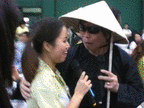
Lan tỏa nét độc đáo của đờn ca tài tử
Sách "Tìm hiểu âm nhạc tài tử và cải lương vọng cổ - Ghita phím lõm" vừa ra mắt công chúng của nhạc sĩ Kiều Tấn là một tư liệu quý về tân nhạc, cổ nhạc và đờn ca tài tử (ĐCTT).

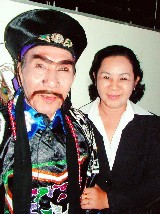

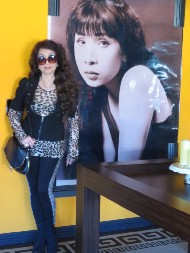
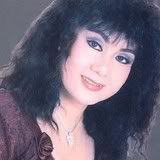
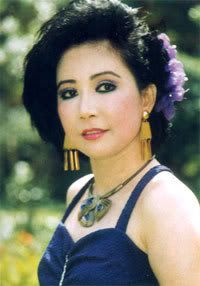

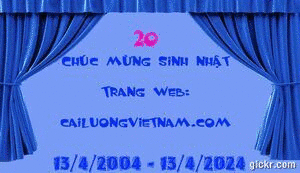
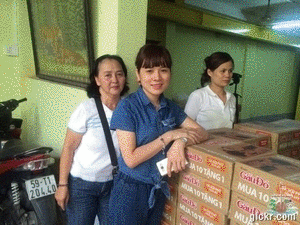



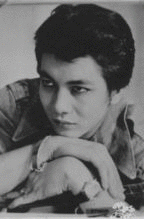

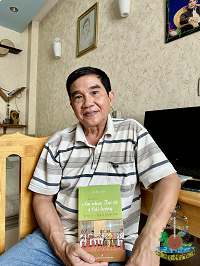


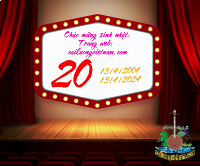

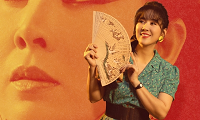

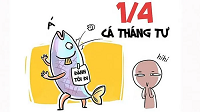
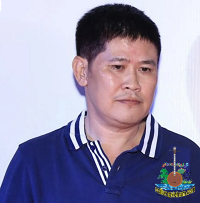

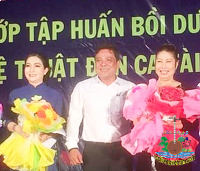

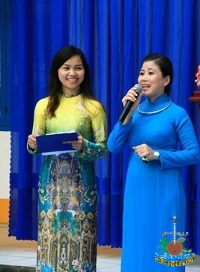


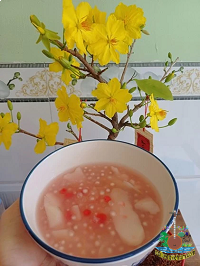









Ý kiến bạn đọc